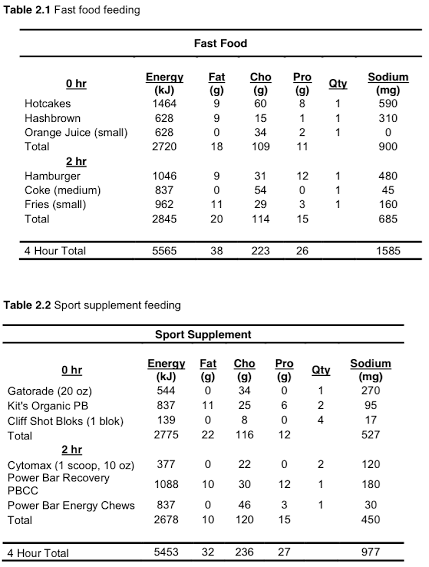As easy-to-understand
as cereal and milk
Many dietitians live by the mantra of, “food first.” We encourage and prefer that our patients or
clients obtain their nutritional needs through food versus supplements because
most often, real foods can supply
nutritional needs and are safer, more affordable, more accessible and can often
be more palatable. Nevertheless, athletes and adults who engage in physical
activity and are hoping to optimize training seek out the latest and greatest
supplement that will give them “an edge” over competitors. It is important to
remind athletes and adults that a solid diet is no match for any sports
supplement on the market. Combine a
well-balanced diet with proper pre- and post-workout nutrition and both
athletes and adults can meet nutrition needs through real foods and maximize training efforts. Though they can be convenient, supplements
are not necessary, especially for “average” adults (as opposed to elite
athletes) and kids who engage in 1 to 3 daily hours of physical activity.
Athletic training coupled with proper meal and nutrient timing,
especially proximal to physical activity, can result in greater strength gains,
enhanced performance, improved body composition, better workout recovery and
even better mood, post workout1.
Many questions still remain, however, as to the best fueling
protocol. Studies are conflicting and
there are many factors to consider, such as whether the individual is an
untrained versus trained athlete, is engaging in strength versus endurance activity
and whether it is an older versus younger athlete, all of which have unique
needs and respond differently to training, fueling and refueling 1, 2. Additionally, there are mixed results
pertaining to complex versus simple (or low glycemic index versus high glycemic
index) carbohydrates and pre- versus post-workout timing and even the oft-cited
“30-minute post-workout window,” for refueling3.
Despite the many considerations, there are two important nutrients
we can agree upon—protein and carbohydrate.
Consumption of protein and carbohydrate foods before and after a workout
results in increased protein synthesis, maximum glycogen storage and even
improved immunity3. The
International Society of Sports Nutrition recommends 6 to 20 grams of high
quality protein and 30 to 40 grams of carbohydrate before and after exercise
for maximal benefits 1.
Based on these recommendations and in keeping things simple,
affordable and accessible for the average adult, a great pre- and post-workout
snack for kids (or adults) is cereal and milk (or yogurt). In fact, a study from The University of Texas
at Austin found that consumption of cereal (the study tested corn flakes) and
milk resulted in improved protein synthesis, compared to a carbohydrate-only
sports drink when consumed post-workout 4.
Some of your favorite cereals may be a good source of carbohydrates to sustain energy. Look for "100% whole grains" on the ingredients list. If you are gluten-free (GF), oatmeal or corn based cereals (check the label to certify if they are gluten-free) are a great option too. Also, consider looking at the sugar content in the nutrition facts label, try to keep it under 10 grams per serving (which can be anywhere between 2/3 of a cup to 1 cup).
A great source of protein to pair cereal with is yogurt. There are a few different types of yogurt (some with a lot of sugar and some with little to none added). In the last several years, high protein Greek yogurt and Icelandic Skyr have thicker consistencies and 8+ g of protein in a serving (some have as much as 20 g per cup or the equivalent of a chicken breast). Double check the label to keep the amount of sugar down or get plain yogurt and add sweeteners as desired.
1.
Kerksick, Chad et al. “International Society of
Sports Nutrition Position Stand: Nutrient Timing.” Journal of the International
Society of Sports Nutrition 5 (2008): 17. PMC. Web. 31 Mar. 2015.
2.
Hulmi, Juha J, Christopher M Lockwood, and
Jeffrey R Stout. “Effect of Protein/essential Amino Acids and Resistance
Training on Skeletal Muscle Hypertrophy: A Case for Whey Protein.” Nutrition
& Metabolism 7 (2010): 51. PMC. Web. 31 Mar. 2015.
3.
Aragon, Alan Albert, and Brad Jon Schoenfeld.
“Nutrient Timing Revisited: Is There a Post-Exercise Anabolic Window?” Journal
of the International Society of Sports Nutrition 10 (2013): 5. PMC.
Web. 31 Mar. 2015.
4.
Kammer, Lynne et al. “Cereal and Nonfat Milk
Support Muscle Recovery Following Exercise.” Journal of the International
Society of Sports Nutrition 6 (2009): 11. PMC. Web. 31 Mar. 2015.
Kym Wroble
is an in-store registered dietitian for Hy-Vee (a large, Midwestern grocery
store chain). She completed her
undergraduate coursework at Dominican University in River Forest, Illinois and
completed her internship with Iowa State University. She has also worked for Scoot County WIC,
prior to Hy-Vee.
Kym played
varsity volleyball at Dominican University and also at Augustana College in
Rock Island, Illinois. She continues to enjoy a very active lifestyle: playing
indoor and outdoor hockey, running, weight lifting, taking exercise classes and
training for the JDRF Race to A Cure Diabetes century ride every summer. She is
extremely passionate about sports nutrition and hopes to one day be the
registered dietitian for the Chicago Blackhawks.


